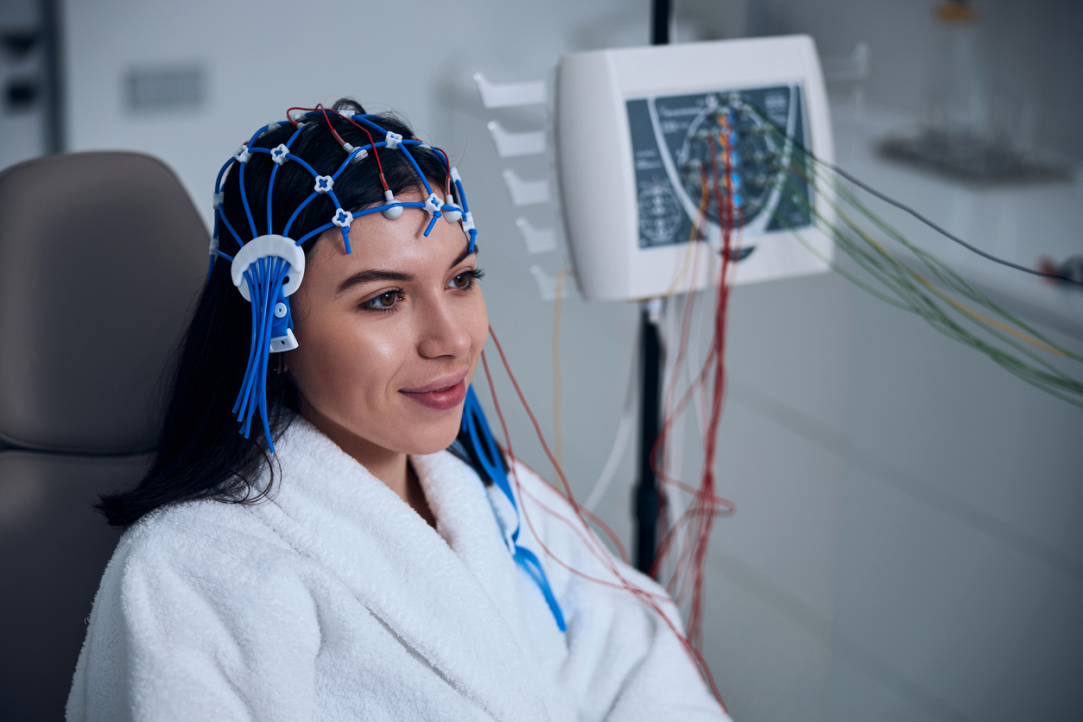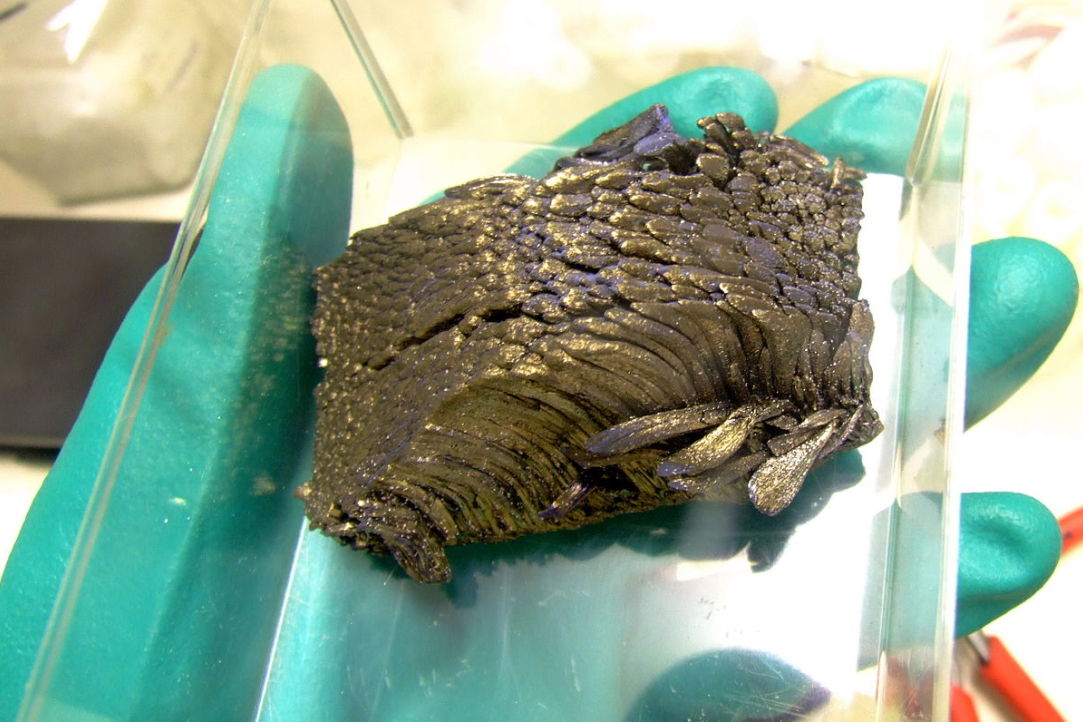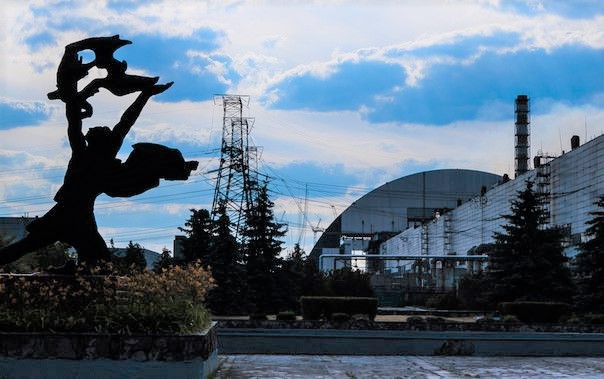
Readiness to Punish Others for Selfish Behaviour Explained by Functional Brain Connections
The stronger the functional brain connections, the less inclined someone is to punish others for unfair behaviour. This conclusion was reached by HSE researchers following a neuroimaging experiment. Their paper ‘Wired to punish? Electroencephalographic study of the resting-state neuronal oscillations underlying third-party punishment’ was published in the journal Neuroscience.

Wonderful Lanthanides: Researchers Systematize Global Data on the Properties of Rare-Earth Metals
Yury Belousov, Associate Professor at the HSE Faculty of Chemistry, joined his colleagues from Moscow State University, Lebedev Physical Institute, and the University of Camerino, Italy, to work on a review, in which they compared and analysed over 200 lanthanide azolecarboxylates. The scholars were the first to systematize the scattered published information in a single source, which will be useful for technology developments in electronics, metallurgy and nuclear medicine, as well as in the chemical and nuclear industries. The review was published in Coordination Chemistry Reviews.

Researchers Come Up with a New Explanation of Processes that Underlie Working Memory
Researchers from the HSE Centre for Cognition & Decision Making have developed a computational model of working memory and demonstrated the stabilizing effect of gamma oscillations, as well as the importance of fast interaction between the model components. The study results have the potential to become part of a theoretical basis for experiments on improving working memory functions with non-invasive brain stimulation. The study was published in Frontiers in Neural Circuits .

‘The Study Experience at HSE University Was Important to Me in Starting in a New Career’
Russian corporations have started practicing mindfulness meditation to solve psychological tasks in their teams. The Applied Psychology: Health and Well-Being journal has accepted for publication the paper ‘Short-Term Effects of an Online Mindfulness Meditation Intervention’ by Evgeny Osin, Associate Professor at the HSEFaculty of Social Sciences, and Irina Turilina, graduate of the master’s programme in Counselling Psychology. Personality Studies. Irina spoke to the HSE News Service about the research and her studies at HSE University.

HSE Researchers Discover Nucleotide Sequence Responsible for Effectively Fighting Pathologies
Researchers from HSE University have discovered nucleotide sequences characteristic of microRNA isoforms (microRNAs with errors). The discovery will help predict errors in microRNA behaviour and create drugs that can detect targets (such as viruses) more effectively. The results of the study have been published in the RNA Biology journal.

How to Improve the Vaccination Campaign and Achieve Global Immunity to COVID-19
An international study conducted with the participation of HSE University researchers has found that people in developing countries are much more willing to get vaccinated, the most common reason for not getting vaccinating is fear of side-effects, and attitudes towards vaccination are primarily influenced by doctors and health professionals.

Europe to Face a Reverse Brain Drain: Up to 3.5 Million Highly Skilled Professionals Could Return Home
As the pandemic continues and working from home becomes the norm in some industries, professionals who once left to work in other countries are beginning to return home. Researchers from HSE University, the Catholic University of Louvain and the University of Lille have found out how strong this movement could be and what economic, social and political implications it might bring. The preprint of the study was published in the GLO Discussion Papers.

The Trauma of Chernobyl: Why Our Collective Memory of Disasters Tends to Fade with Time
This year marks the 35th anniversary of the Chernobyl disaster. The event recedes ever further into the past, but the legacy of the trauma it caused endures. That stress produced trauma, and the trauma became part of Russia’s collective memory. Sociologists Yulia Belova, Margarita Muravitskaya and Nadezhda Melnikova of HSE’s Institute for Applied Political Research and Laboratory for Studies in Economic Sociology researched what this means for people who lived in the radioactively contaminated zone around the reactor and why the collective memory of the accident might disappear.

2D:4D Ratio Is Not Related to Sex-Determined Finger Size Differences in Men And Women
The ratios between the lengths of the second and fourth fingers, known as the 2D:4D ratio, are different in males and females, which is often explained by levels of androgens and oestrogens. However, an alternative theory states that men have bigger body parts, including fingers, which impacts the 2D:4D ratio. A research team including HSE University scholars refuted this hypothesis by collecting data on finger length from 7,500 people. The results of the study were published in Scientific Reports.

Russian IT Freelancers Face Gender Discrimination
Olga Vilkova, a PhD student of the HSE University's Faculty of Social Sciences, has proved that IT engineers face inequality and discrimination on the Russian online freelance market—websites offering jobs for self-employed people. The researcher analyzed the data on professional success of 54,000 IT engineers registered on the major Russian freelancing platform FL.ru. The research is published in the Monitoring of Public Opinion: Economic and Social Changes Journal.

